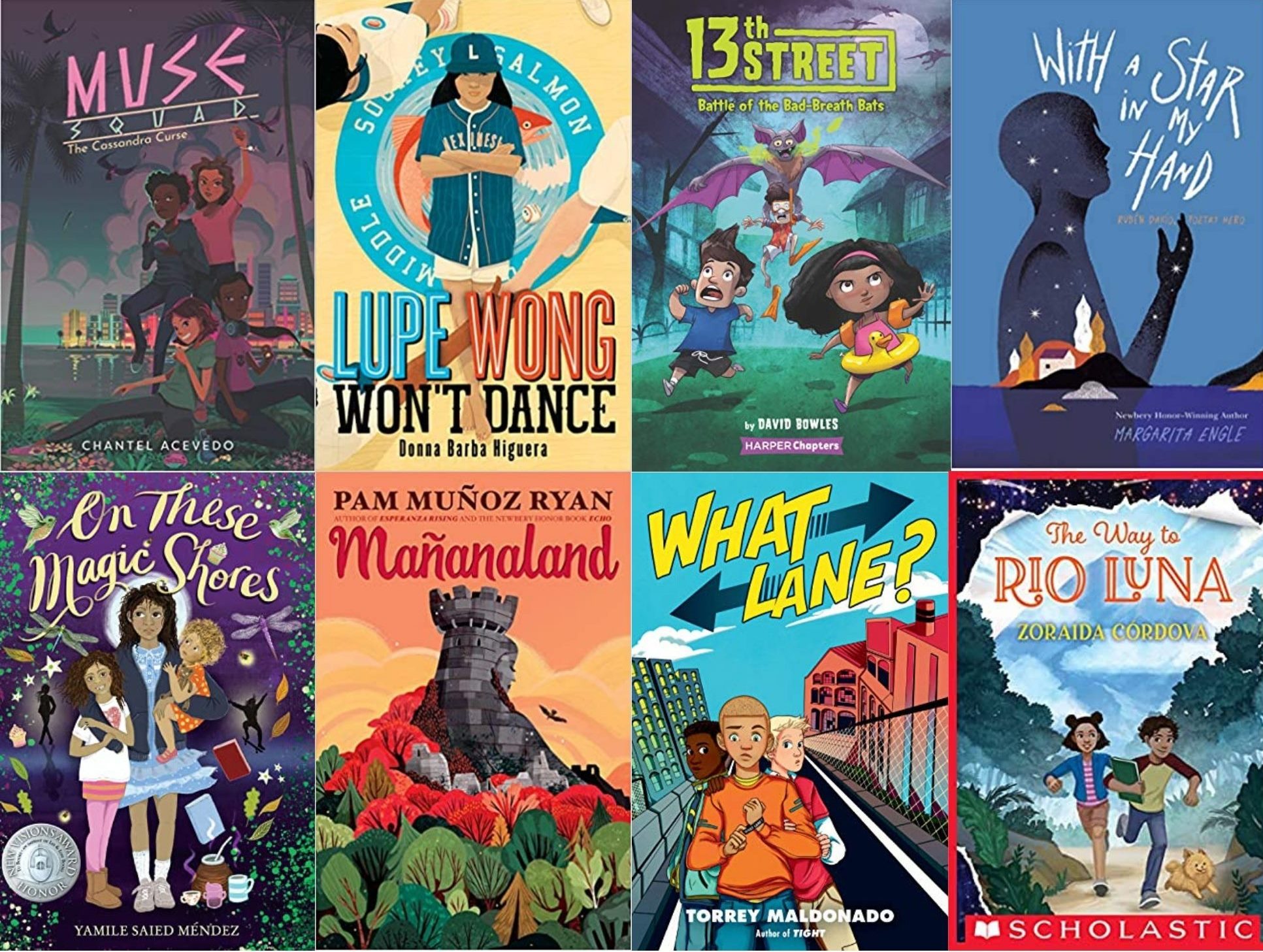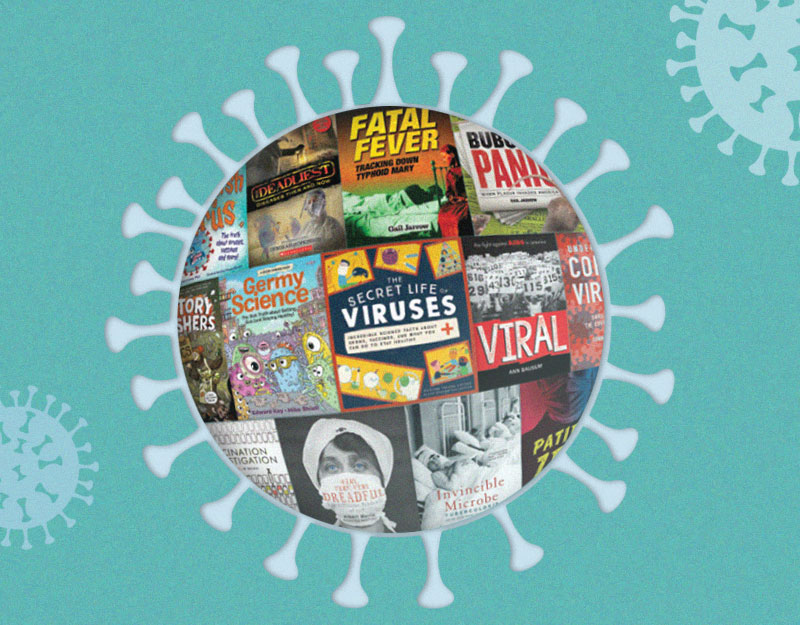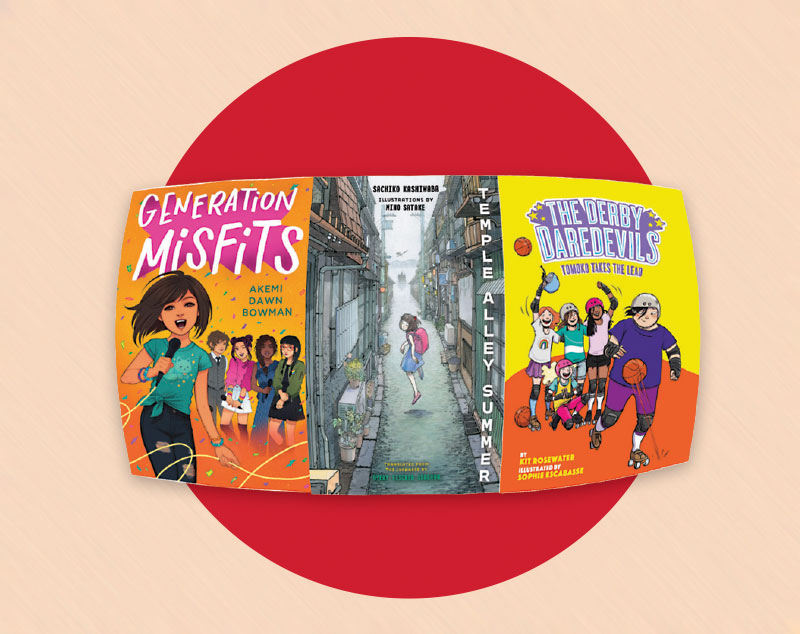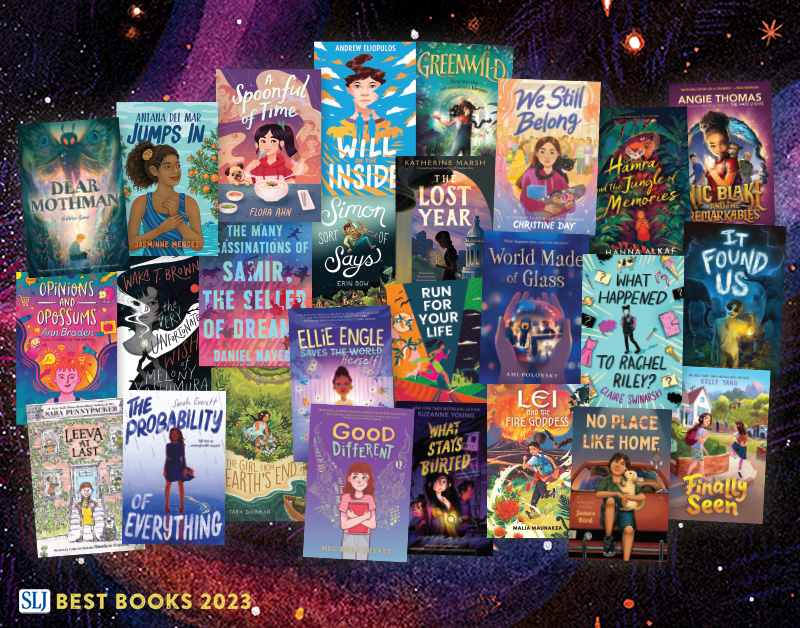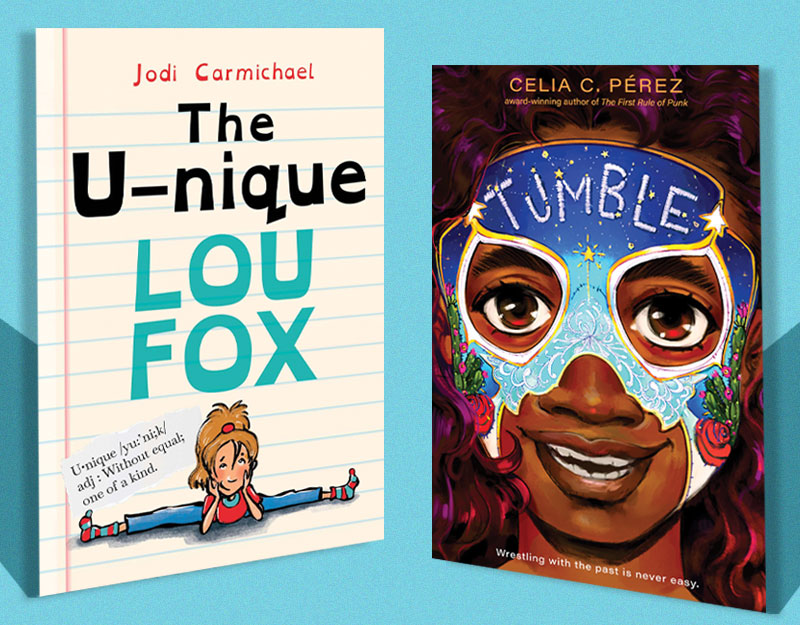#LastListEgmont: Authors Ilsa J. Bick and Kristi Helvig Discuss Sci Fi
Today as part of our look at EgmontUSA’s Last List (#LastListEgmont), author’s Ilsa J. Bick and Kristi Helvig interview each other about writing sci fi.
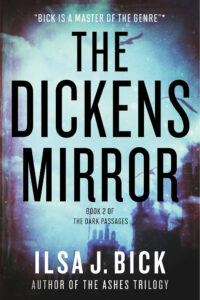 Ilsa: You know, Kristi, in thinking about what I wanted to ask, I realized that we have a lot in common, including that we’ve both done sci-fi. So let’s talk genre for a second. What is it about science fiction that appeals to you? Did you read the genre when you were a kid? Do you read it now? Is this the first sci-fi you’ve written? Did you set out to write a sci-fi story, or did the story tell you somewhere along the way?
Ilsa: You know, Kristi, in thinking about what I wanted to ask, I realized that we have a lot in common, including that we’ve both done sci-fi. So let’s talk genre for a second. What is it about science fiction that appeals to you? Did you read the genre when you were a kid? Do you read it now? Is this the first sci-fi you’ve written? Did you set out to write a sci-fi story, or did the story tell you somewhere along the way?
Kristi: Wow, that’s a lot of questions in one question! I’ve always loved science fiction because I think that there are so many real-life possibilities within the pretext of “fiction.” So many things that I’ve read or seen in sci-fi books or movies (from holograms to artificial intelligence) have come to pass in my lifetime. My favorite sci-fi book as a child was A WRINKLE IN TIME by Madeleine L’Engle–and it’s still one of my faves.
ADVERTISEMENT
ADVERTISEMENT
Ilsa: Oh, me, too. I talk about that book all the time, especially when I’m presenting to librarians or teachers about the differences and similarities between latency and adolescent narratives, and I know that book had a big impact on me. I still remember the one story I wrote—this is when I was in high school, and it’s the only one I remember writing—was a direct steal. There was this evil principal brain (aka, IT from WRINKLE) that had taken over the school and made zombies out of all the students except me. So, of course, I saved the day by killing the thing with a knife. Atrocious story. What’s more amazing is that I bothered saving all those kids who wouldn’t give me, this geeky nerd, the time of day. Maybe that’s why it’s called fiction. But, yeah, definitely a fave: Whenever I talk about it, get all choked up when I describe that last scene in the garden and Meg’s terrific line about how someone has to be glad to see Calvin, too. That book is all about reconstituting family.
So, what else? Other books, films? TV?
 Kristi: Currently, I’m reading THE MARTIAN by Andy Weir for my book club and I’m loving it, and I watch all things sci-fi. My favorite sci-fi shows are Firefly and the new Battlestar Galactica. My first sci-fi show ever was watching Dr. Who with my dad in childhood.
Kristi: Currently, I’m reading THE MARTIAN by Andy Weir for my book club and I’m loving it, and I watch all things sci-fi. My favorite sci-fi shows are Firefly and the new Battlestar Galactica. My first sci-fi show ever was watching Dr. Who with my dad in childhood.
Ilsa: Gotta say that new Battlestar was totally kick-ass, although I kind of think it fizzled a bit. All right, I’ll be honest. The end was an absolute cop-out (and it so reminded me of Lost in its execution, too); it just felt as if the writers had run out of ideas because, oh yeah, it’s so believable that these guys scatter with a couple backpacks apiece and actually survive.
Never watched Firefly—I know, heresy—but I love Serenity, which didn’t require that you know the series at all.
Actually, my favorite sf show is still the original Star Trek, though—honestly—it’s all about Kirk’s chest. My God, that man was beefcake in my day. I’m also probably one of the only people in the universe who actually liked Voyager, at least until the fifth season. Seven of Nine was such an interesting character, I ended writing about her twice in my work-for-hire days. I’d have happily done more.
So, what about your book, Kristi? Did you know it would be sf? Me, I knew that both WHITE SPACE and THE DICKENS MIRROR (and I’m thinking the ASHES trilogy as well) would have some sf elements, but I wanted the narrative firmly rooted in the present day (or, in DICKENS’ case, an alternative Victorian London), with no aliens per se, rockets, that kind of thing. Although I’ve certainly written about rockets and space travel and other worlds, these days, I guess I’m more about applying and manipulating science to the narrative, more than I’m about going on a spaceship to some other planet. (But, you watch: I’ve got this nifty outline for a true, hardcore sf novel that I’ll probably do next right after the book I’m working on now.)
Like I said, I’ve certainly done my share of sf (short stories and all my work-for-hire). But I find myself staying on present-day Earth. Maybe I’m just not imaginative enough, I don’t know. Or maybe I like putting something on Earth and then weirding it up a bit. Like, you wouldn’t call Dean Koontz or Stephen King science fiction writers per se, even though they both incorporate weird elements that sometimes have a basis in science. (For King, I’m thinking something like CELL or DUMA KEY, for example.)
So, anyway, what about you? How’d you get the idea, anyway?
Kristi: I grew up on Stephen King and Dean Koontz, and love how they incorporate strange elements into a contemporary setting. Insomnia is one of my favorite Stephen King books! As for my book, yeah, it was definitely sci-fi from the beginning. It was based on a vivid dream I had after watching a science documentary on television late one night. My dream involved our sun burning out way ahead of schedule and the entire cast of characters played out like a movie in my dream that night. It was pretty cool, actually, and I woke up scribbling in my journal like mad and finished the first draft in 6 weeks.
Ilsa: Okay, that is pretty cool. I have a writer-friend who frequently takes naps when he gets stuck on some plot point ;-). Interesting that your process was so . . . visual, know what I mean? I’m that way; I really have to see what’s going on, which is probably why I work so hard to incorporate as many sensory elements into a description as possible. One of the big gripes I have in terms of fiction is that, sometimes, writers use placeholder descriptions; I can’t really see what they’re talking about, you know? I’ve once gone through an entire book and still not had one bloody clue what the protag looked like. (It’s a holdover from all my work on film, too, I’m sure.)
Kristi: I loved the description for your new series that compared it to “Memento meets Inception,” as I’m obsessed with both those movies.
Ilsa: Oh, completely love those films. In fact, when I was sitting through Inception, I kept thinking, how would you write this? How could you translate what they’re doing to a book? Not that either movie gave me the idea per se, but I’ve always been interesting in the truly mind-bending.
Kristi: Well, following on that, the blurb for WHITE SPACE is so intriguing that I have to ask how you came up with such a cool idea? Is the idea of parallel, or alternate universes something you’ve explored before?
Ilsa: You know, I’ll be honest: the idea for my Dark Passages series actually came from my youngest daughter. See, I have this habit of killing her off in my stories in the most horrible ways. Honestly, you’d think the kid would catch a clue.
Anyway, she made some offhand remark about a book I was working on, like was I going to kill her this time or not. (I wasn’t; I was busy killing her cousins.) But we did talk about it, because it turns out she was both kind of flattered but also upset that I kept offing her even though it really wasn’t her. Like she had to remind herself that, even I happened to use her name or a recognizable detail—her teddy bear or bicycle, for example—none of what I’d written had happened to her. Still, every time, her brain kind of tripped over those things, and she would feel uncomfortable.
Which was just so interesting and got me to thinking about perception and reality, something in which, as a shrink, you do anyway. (Really, as a therapist, you are attempting to shift a patient’s perception of reality, but is that the same thing as truth? No, it’s your truth; it’s what you perceive as being more normative. Sort of a slippery slope, if you take my meaning.)
We take it for granted that when we open our eyes, that what surrounds us is real. But how do you know for sure? You don’t. For that matter, you have no clue that what you see in the mirror is how you truly appear to others. By extension, what others say about you influences your perceptions about yourself and, by extension, your reality. So . . . can anyone be sure that you’re the author of your own story? What if you’re really a character in someone else’s drama and don’t know it?
Then I started thinking about energy and quantum realities and twinning and what you might able to do if you were able to actually capture a quantum twin and place it someplace where you might not be able to collapse probabilities . . . well, that’s how The Dark Passages got its start. I’ll about trying something new because it keeps me interested as a writer. Funny, though, that you should ask about whether I’ve done something like this before because the sf book I thinking of doing after my current work-in-progress is very much about parallel timelines.
Following up on using science in fiction, I guess I like to try and use real science to weird up a narrative as much as possible, just as I did in the ASHES trilogy where, with the exception of what might happen to a person exposed to a massive wave of EMPs, most of the science there is real. I think my insistence on real science is related to me being a shrink and knowing medicine. What about you? You’re a PhD, right? Does what you do in your day job influence how you approach your characters?
Kristi: Oh, we have so much in common—I’m obsessed with quantum physics and love the theories regarding parallel lives and universes! And yes, I have my Ph.D. in clinical psychology and have always been fascinated by what makes people tick and why they make the choices they make. I’m also a research nerd which is why the science part of sci-fi is so fun for me. At this point, I’ve worked with thousands of clients from children through adults on an inpatient and outpatient basis, so I’ve seen and heard a ton of interesting things. Being a psychologist definitely helps me shape the psychology of my characters in stories, and I get a lot of compliments about my characterization so maybe it helps a bit with that aspect of things.
Ilsa: Me, too. In fact, I was doing this signing in a bookstore just the other day, and this dad, who had finished the ASHES trilogy and was currently reading THE SIN-EATER’S CONFESSION, which is all about the murder of a kid, who may or may not have been in gay—anyway, he said that what he really liked in my books was how I didn’t shy away from showing how awful real life could be or how terrible people are to one another.
I guess that’s because, as a shrink, you crawl through a lot of private sewers. I’ve worked with kids in family bound together by hate, those who treat the people they say they love so badly, and, of course, the outright abusive. I’ve also worked in a women’s prison with people you really don’t want to meet in a dark alley; honestly, orange is the new black this ain’t. Coupled with having grown up around military folks and my own service during the First Gulf War working with soldiers in the run-up and after their deployments as well as more personal history (my dad’s a Holocaust survivor, for example, and I’ve had my own run-ins with prejudice, even now) . . . I know that people behave very badly all the time. There’s no way I can write sweetness and light because they are tough to find. I’m not necessarily a pessimist, but I do think that people can be counted on to live down to your lowest expectations, especially when things go south. Yes, of course, there are people who surprise you, but they’re in the minority.
What about your characters, though? I mean, I don’t know about you, but I’ve had fans write in and wonder if I’ve based my characters on real people I’ve treated, that kind of thing. The answer to that is a big no—that would be both unethical and against the law—but, of course, since I’m taking stuff from my head and memories, so . . . yes, I’ve treated people who had cancer; I’ve known some very troubled folks. You?
Kristi: Ha-ha; I get that a question a lot. That and when people find out that I’m a psychologist, they’ll ask me if I’m diagnosing them in my head (truth: sometimes I am). No, I’ve never based a character on anyone I know in real life, whether it be a family member, client, etc. However, sometimes a character trait will stick out to me or I’ll overhear a snippet of conversation in a store and wonder about what that person’s life must be like. I’ve always had an active imagination and can run with small things. I worked for awhile as the manager of an inpatient adolescent girls unit, where a lot of the girls were committed through youth corrections, so I think my main character Tora has some qualities of many of the girls I met there…that mental toughness due to enduring so much life trauma.
Ilsa: Are you going to stick with your practice? Or is it your dream to quit and be a full-time writer?
Kristi: As far as the career thing, I feel like I’m ever-evolving in that area. I feel lucky in that I only work part-time (6-8 hours a week) in a private practice right now, and after I burned out on traditional therapy, I got additional certification in life coaching so I work mainly with people who are motivated to change careers, lose weight, write a novel, etc. I also became a Reiki Master as I’m fascinated with energy and how it impacts the body. When the kids are in school, I have a lot of time to write, so I feel very lucky with the balance I have going on right now because I’m not someone who could get up at 4am to write before heading out to a full-time job! That said, I hardly get anything done in the summers because I love hanging out with my kiddos while they’re still young…so I’m okay with it, because I know I’ll blink and they’ll be in college.
What about you? At what point in your practice did you decide to write novels? Do you still practice?
Ilsa: Well, that’s kind of a long story. In a nutshell, I get bored really easily, and so when I was doing my child fellowship, I went back to school at night and got a degree in film and literature studies. Then, since I was also a psychoanalytic candidate, I started writing a lot of nonfiction articles applying psychoanalysis to film and television (and some lit; my first published paper was on Ray Bradbury): not putting films and TV on the couch so much as looking at how the structure of a film and its imagery mirrored its psychological and developmental concerns. I wrote and presented tons, including a pretty big paper on Star Trek that has been reprinted and is still taught in some film courses and which I presented way back at the Smithsonian’s Air and Space for their retrospective on the series. I’ll still get the occasional email every couple of months where someone asks for a reprint or me to clarify a point (or contribute a chapter in a book!).
But I quickly got bored again, and that’s when the husband essentially dared me to write stories because that’s what he thought I was really about. I thought he was nuts, but he said that I was more worried that I would fail if I tried. Honestly? He was right. But I also don’t back down from dares, so I started writing. I was full-time private practice at the time and had been for, gosh, six, seven years and the day was pretty patient-packed. So I got really, really early and wrote for a couple hours and then stayed up really, really late to squeak in some more words. The husband would take the kids to museums or an outing on Saturdays, so I could get more writing in. Eventually, when we moved to Wisconsin, I dropped the private practice but then worked as a consultant to a managed care company and a women’s prison for quite a few years until I finally stopped seeing patients roundabout seven years ago. By then, I’d published a lot of stories and gone on into work-for-hire—you know, writing novels and stories set in the Star Trek, Battletech, Shadowrun, and Mechwarrior Dark Age universes—but was still struggling to figure out what I wanted to write that would be uniquely my own.
Kristi: Well, you have another very popular series, the ASHES trilogy and your novels with Carolrhoda Lab, so I’m impressed by how prolific you are. I’m such a newbie compared to you, being that BURN OUT is my first series. Do you have a set writing routine that you follow?
Ilsa: I’m pretty disciplined, although that might be just a synonym for being incredibly boring and that all might be related to having been in medical school and then the military—you don’t get through either if you can’t set up and stick to a routine. I mean, I look at writing as a job, and if you want to get paid, you have to show up to work. Which means that I’m up by 6-6:30, have my coffee, pull out my iPad, and type out the basic bullet points and plot elements of whatever chapter or section I’m on that day (although I’ve frequently have done that the day before or on these little scraps of paper that I leave all over the house); and then I screw my butt in the chair and write until I reach my goal, which is normally a set number of pages I must do every day. Sometimes that means I’m done by 2 or so; at others, it means I knock off long enough to exercise, come back, do the dinner thing, and then go back to work until I’m done.
Kristi: This is one of those areas that I’m trying to improve. I’d love to say I write from 9a-2p every day, but the truth is, I write when I can. Some days that’s hours, and other days it’s not at all. I do have this spot on the couch where I write (in fact, I’m sitting there now!), and I go into this zone as soon as I sit down. When I’m in first draft mode, I’m crazy intense (as in forgetting to eat and shower) because I just want to get it down but then I’ll go in fits and spurts when I’m revising.
What about process? Would you call yourself a plotter or panster by nature?
Ilsa: Plotter. Remember, I started out in work-for-hire and there, you’ve got to submit an outline for approval. They want to make sure you don’t violate the universe rules or kill off Captain Kirk and not bring him back, that kind of thing. So I’m pretty methodical. I also used to write these HUMONGOUS outlines (like, 250 pages’ worth). An editor once joked that all I had to do was put in adjectives, and I was done. But this way, I thought through the whole story.
As time has gone on, though, I’ve found that a) my outlines are shorter; b) I get more impatient to get started already and not write the life out of the story; and c) once I’ve written an outline, I oftentimes don’t ever refer to it again. It’s as if I’ve told the story to myself once, but then I have to see how it really plays out on paper. Frequently, I find that what looked good in outline sucks in execution and so things change. They usually do anyway as the characters find their voices and decide which way they want to go. You just let them. They know what they’re doing.
Let’s shift gears a sec and talk YA. A lot of people worry about there being too much realism in YA fiction; that it’s too dark. Conversely, at least one author has recently said that YA isn’t all that morally complex. Which do you think is right? Is there a middle ground? Does a book need to be morally complex in order to be good?
Kristi: Well, I definitely disagree that YA isn’t all that morally complex…as the genre implies, the books involve young adults, which is like saying teens aren’t complex. That’s absurd. I love the grey area between black and white, and how some good people do bad things and vice versa. I take it as a compliment that so many people have told me they can’t figure out if James in BURN OUT is a good guy or a bad guy. I think people are complex by nature and we try too often to put people in boxes to make it easier to organize our world. Some YA is dark, but I also don’t understand how it could be considered “too realistic.” When a teen connects with something on a personal level and feels that it helped them get through a dark time in their life, that’s a good thing in my opinion—I’m thinking of books like SPEAK by Laurie Halse Anderson and SCARS by Cheryl Rainfield. I know authors who write realistic fiction have gotten letters or emails from readers saying that their book saved their lives. Like it or not, some crappy real-life stuff happens to teens, and they need books to validate their experiences too. I’ve done countless individual therapy sessions with many of those teens, but books can reach so many people at once.
Ilsa: Earlier, you talked about trauma, and we’ve both had quite the traumatic time of it recently, what with Egmont’s closing and all. What have been some of your darker moments, and if you’ve had them, how have you gotten yourself out?
Kristi: My first editor left Egmont even before BURN OUT was published, so I was used to things changing unexpectedly. Then more recently, I had a conversation with my editor, Alison Weiss, that Egmont was up for sale, so I was expecting news of a sale at some point. Alison and I had this marathon phone call where we went over final edits for STRANGE SKIES and it went to the printer on the Friday before everything changed. She called me a few days later to tell me about Egmont closing and seemed as shocked as I was. So I was in this weird place of being excited that I was finally finished with everything for my sequel at the same time that I found out my publisher was closing. I felt horrible for authors I knew whose books were cancelled due to the news, and horrible for the amazingly talented staff at Egmont, while also feeling incredibly lucky that they bumped up my publishing date so that the book would still come out. I already knew that one of the constants in publishing is change, but it was still a shock.
Ilsa: Boy, I know what you mean. I think that because I’ve been with Egmont longer, I thought something bad might be in the works. I mean, first, a marketing person leaves and then the guy who was the liaison with the parent company and then the publisher and then your original editor and, three seconds later, another marketing person . . . it felt like a slow-motion train wreck, but I tried not to think too hard about it. Although there are only so many times you can look at caller ID, see it’s your editor who has no earthly reason to call you just to shoot the breeze, and think, Uh-oh, this can’t be good.
I know it affected me, though, all this change. I’ve started three or four books and been unable to finish them, and I do think that part of that was this simmering uncertainty. Not all of it; I had other stuff going on and a surgery to recover from . . . but, still.
In a way, as awful as the closing is, at least there’s not that uncertainty anymore. Was I upset? Oh sure, you bet. I didn’t cry, but I did get this terrible sinking sensation in the pit of my gut. I mean, for heaven’s sake, EgmontUSA launched the ASHES trilogy and the editor with whom I’d worked then understood what I was trying to do with The Dark Passages series right away. There was this great marketing team out there that loved and promoted my work. So, after I absorbed the news, the first things that popped into my head were a) what happens to the books that are already out and b) what about THE DICKENS MIRROR?
In my case, I’ve been lucky. The parent company, Egmont UK, has picked up all my books and they’ll continue to be available through all the usual venues for the foreseeable future. The distributor will change after June, going from Random House to Trafalgar, but that won’t affect my books’ availability. So that’s good.
And, honestly? I think that the finality’s been good. After the shock wore off, I dusted off a book I’d been working on that I really liked—I’d been writing it when I had to knock off and do Dickens Mirror—and tore it up and started all over. Since then, the writing’s been going great, and I’m already looking ahead to the next book when I’m done with this one.
What about you and your trilogy?
Kristi: There’s this quote I love by the Roman philosopher, Seneca: “Every new beginning comes from some other’s beginnings end.” I think a pop song used that quote too, because I started humming it while typing the quote. Anyway, I think the quote is so true, and I’ve always adapted well to change, so I trust that whatever happens next will be great. I’ll definitely write the 3rd book of the trilogy—and since I get my rights back right away, I’ll probably self-publish it as a new publisher doesn’t often pick up a series at the end. My new YA is a fantasy that will be on its way to my fabulous agent shortly, and as luck would have it, I had an amazing dream this week that will by the basis of my new YA thriller. I’ve always known I’ve wanted to be a hybrid author (ask all my critique partners!), so this is a great opportunity for me to pursue that.
Ilsa: Well, that’s great. Sounds as if we’re both moving on then. Me, I’ll be eager to hear more about what it’s like to go the self-pub route. In fact, it’s a pretty interesting topic in general because if you think about it, we Egmont Last Listers are being forced into straddling the line between traditional and independent publishing. Maybe a Twitter chat about this would be the way to go because I’ll bet there are tons of writers out there to whom something like this has happened, or they’ve had a series cancelled, that kind of thing.
Anyway, thanks so much for hanging out with me, Kristi. It’s been fun.
Kristi: It’s been a blast getting to know you better—thanks so much for doing this interview, Ilsa! 🙂
Publisher’s Book Descriptions
The Dickens Mirror (Dark Passages #2)
Critically acclaimed author of The Ashes Trilogy, Ilsa J. Bick takes her new Dark Passages series to an alternative Victorian London where Emma Lindsay continues to wade through blurred realities now that she has lost everything: her way, her reality, her friends. In this London, Emma will find alternative versions of her friends from the White Space and even Arthur Conan Doyle.
Emma Lindsay finds herself with nowhere to go, no place to call home. Her friends are dead. Eric, the perfect boy she wrote into being, and his brother, Casey, are lost to the Dark Passages. With no way of knowing where she belongs, she commands the cynosure, a beacon and lens that allows for safe passage between the Many Worlds, to put her where she might find her friends—find Eric—again. What she never anticipated was waking up in the body of Little Lizzie, all grown up—or that, in this alternative London, Elizabeth McDermott is mad.
In this London, Tony and Rima are “rats,” teens who gather the dead to be used for fuel. Their friend, Bode, is an attendant at Bedlam, where Elizabeth has been committed after being rescued by Arthur Conan Doyle, a drug-addicted constable.
Tormented by the voices of all the many characters based on her, all Elizabeth wants is to get rid of the pieces under her skin once and for all. While professing to treat Elizabeth, her physician, Dr. Kramer, has actually drugged her to allow Emma—who’s blinked to this London before—to emerge as the dominant personality…because Kramer has plans. Elizabeth is the key to finding and accessing the Dickens Mirror.
But Elizabeth is dying, and if Emma can’t find a way out, everyone as they exist in this London, as well as the twelve-year-old version of herself and the shadows—what remains of Eric, Casey, and Rima that she pulled with her from the Dark Passages—will die with her.
Strange Skies (Burnout #2)
Action, adventure, and romance are heating up in this sequel to the futuristic science fiction thriller Burn Out. Perfect for fans of Across the Universe and The Memory of After.
Caelia is the new Earth. That’s what the Consulate told everyone and, against all odds, Tora finally has made it there. She can’t see the ocean from her cell in the Consulate’s containment center, and she doesn’t know what happened to the weapons her father died for and she’s risked her life to save.
But as she plans her escape, she runs into the last person she ever expected to see-her dad. The Consulate has kept held him prisoner in a complicated plot designed to lure Tora out of hiding. Now Tora has a new purpose: break free, get the guns, and save her father.
But first she’ll have to navigate a strange new planet, track down James (whose loyalties still remain questionable), and find Kale…before he finds her first.
Story Locale: Caelia, a planet colonized after Earth becomes unhabitable
Series Overview: In a future where the sun has turned into a red giant, making Earth unhabitable, a teen girl fights for survival while trying to protect the special weapons her father invented from falling into government control
Meet Our Guest Bloggers
 Kristi Helvig is a Ph.D. clinical psychologist turned sci-fi/fantasy author. Her first novel, BURN OUT, (4/14 from Egmont USA) follows 17-year-old Tora Reynolds, one of Earth’s last survivors, when our sun burns out early. In the sequel, STRANGE SKIES, coming 4/28/2015, Tora makes it to a new planet only to discover a whole new host of problems—and the same people who still want her dead. Order Kristi’s books through Amazon, Barnes and Noble, or your favorite local retailer.
Kristi Helvig is a Ph.D. clinical psychologist turned sci-fi/fantasy author. Her first novel, BURN OUT, (4/14 from Egmont USA) follows 17-year-old Tora Reynolds, one of Earth’s last survivors, when our sun burns out early. In the sequel, STRANGE SKIES, coming 4/28/2015, Tora makes it to a new planet only to discover a whole new host of problems—and the same people who still want her dead. Order Kristi’s books through Amazon, Barnes and Noble, or your favorite local retailer.
Kristi muses about Star Trek, space monkeys, and other assorted topics on her blog at www.kristihelvig.com and Twitter (@KristiHelvig). You can also find her on Facebook. Kristi resides in sunny Colorado with her hubby, two kiddos, and behaviorally-challenged dogs.
 Ilsa J. Bick is a child psychiatrist, film scholar, surgeon wannabe, former Air Force major, and now an award-winning author of dozens of short stories and novels, including her critically acclaimed ASHES Trilogy, Draw the Dark, Drowning Instinct, and The Sin-Eater’s Confession. WHITE SPACE, the first volume of her Dark Passages horror/fantasy duology, is currently long-listed for the Bram Stoker Award for Superior Achievement in a YA Novel. The sequel, THE DICKENS MIRROR, will hit shelves on March 10, 2015.
Ilsa J. Bick is a child psychiatrist, film scholar, surgeon wannabe, former Air Force major, and now an award-winning author of dozens of short stories and novels, including her critically acclaimed ASHES Trilogy, Draw the Dark, Drowning Instinct, and The Sin-Eater’s Confession. WHITE SPACE, the first volume of her Dark Passages horror/fantasy duology, is currently long-listed for the Bram Stoker Award for Superior Achievement in a YA Novel. The sequel, THE DICKENS MIRROR, will hit shelves on March 10, 2015.
Ilsa lives with her long-suffering husband and other furry creatures near a Hebrew cemetery in rural Wisconsin. One thing she loves about the neighbors: they’re very quiet and only come around for sugar once in a blue moon.
Drop by her website, www.ilsajbick.com, for her Sundays’ cake and Friday’s cocktail recipes as well as other assorted maunderings; or find her on Facebook, Goodreads, Twitter (@ilsajbick), or Instagram (@ilsajbick).
Filed under: Egmont USA
About Karen Jensen, MLS
Karen Jensen has been a Teen Services Librarian for almost 30 years. She created TLT in 2011 and is the co-editor of The Whole Library Handbook: Teen Services with Heather Booth (ALA Editions, 2014).
ADVERTISEMENT
ADVERTISEMENT
SLJ Blog Network
One Star Review, Guess Who? (#202)
This Q&A is Going Exactly As Planned: A Talk with Tao Nyeu About Her Latest Book
Exclusive: Giant Magical Otters Invade New Hex Vet Graphic Novel | News
Parsing Religion in Public Schools
ADVERTISEMENT



